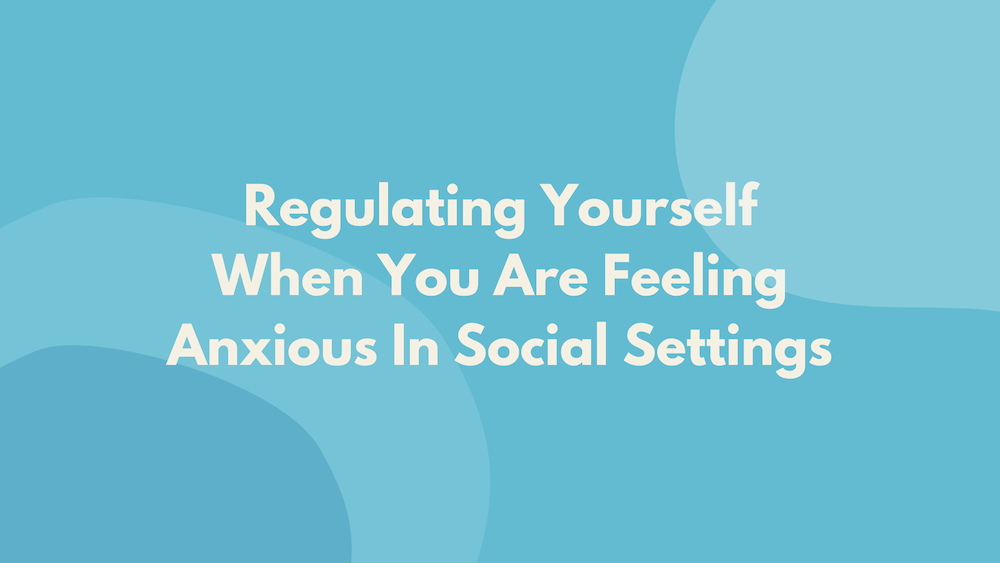Many people experience anxiety in social settings. This can present as a fear of saying the 'wrong
thing', fearing judgement and fearing attention from others. While this anxiety can feel
overwhelming and unmanageable, using coping strategies can make anxiety easier to work with in
day-to-day life. Coping strategies may not 'solve' social anxiety, but can help make situations feel a
bit more tolerable.
Ways to regulate yourself when feeling anxious in social settings:
1. Check in on your breathing
Our breathing can become faster and shallower when feeling anxious, which can in turn make us
feel more anxious.
In these situations, try and sit up straight and relax your shoulders, then place one hand on your
belly and one hand on your chest. Take a deep breath in through your nose, and check to see that
your hand on your belly is rising (not the hand on your chest). Hold the breath for a few seconds,
then slowly breathe out through your mouth. Make sure your breath out is longer than the breath
you took in.
Example
Breathe in for 4 seconds.
Hold your breathe for 4 seconds.
Breathe out for 6 seconds.
Repeat this breathing pattern for a few minutes or until you are feeling less anxious.
2. Use your senses
Try and shift your attention to the environment around you, rather than attending to what is
happening inside your mind. See what you can notice around you, and describe it in your head in as
much detail as possible.
Maybe there is a houseplant in the corner of the room... how would you describe the colour? Are
there shadows being cast nearby? What about touch, what does the plant feel like? Does it feel
different on the leaves than it does on the stems?
3. Challenge the anxious thoughts
Using positive affirmations can help to make social situations feel less threatening. Some examples
may include; 'I am safe and secure', 'I am more than my anxiety', and 'I am doing my best'. You
can think of some of your own, and write them down in a journal or in a note on your phone for you
to refer to when you are feeling anxious.
4. Ask for support from friends, partners, loved ones
When we are feeling anxious and our nervous system is dysregulated, it can be helpful to be in the
presence and seek support from someone who is more regulated, meaning they are feeling safe and
relaxed. This helps to show our nervous system that there may not be any danger present, and can
help us regain control and return to the present moment.
You may like a hug, for them to hold your hand, do some slow breathing with you, or for them to
simply be in your presence. For example, you may be at a party feeling anxious... let your loved
one know and let them know what you need, such as 'I'm starting to feel anxious, can you please
hold my hand?'
If you experience social anxiety, you could give some of these techniques a try and see what works
for you. These could potentially make life feel even a little bit easier. Working with a psychologist
can also help you to build additional techniques, as well as work from a larger scale to help manage
social anxiety long-term.


